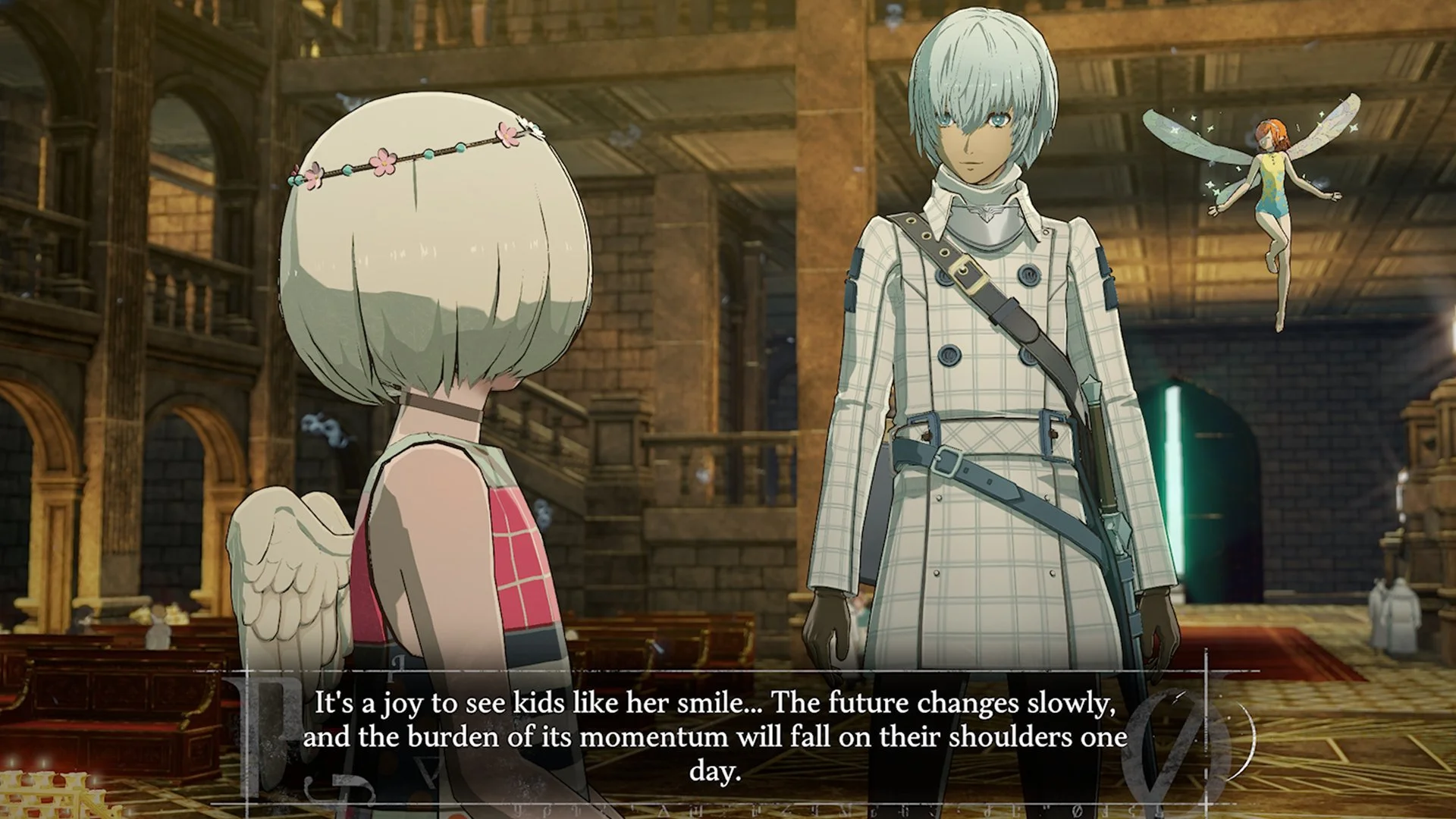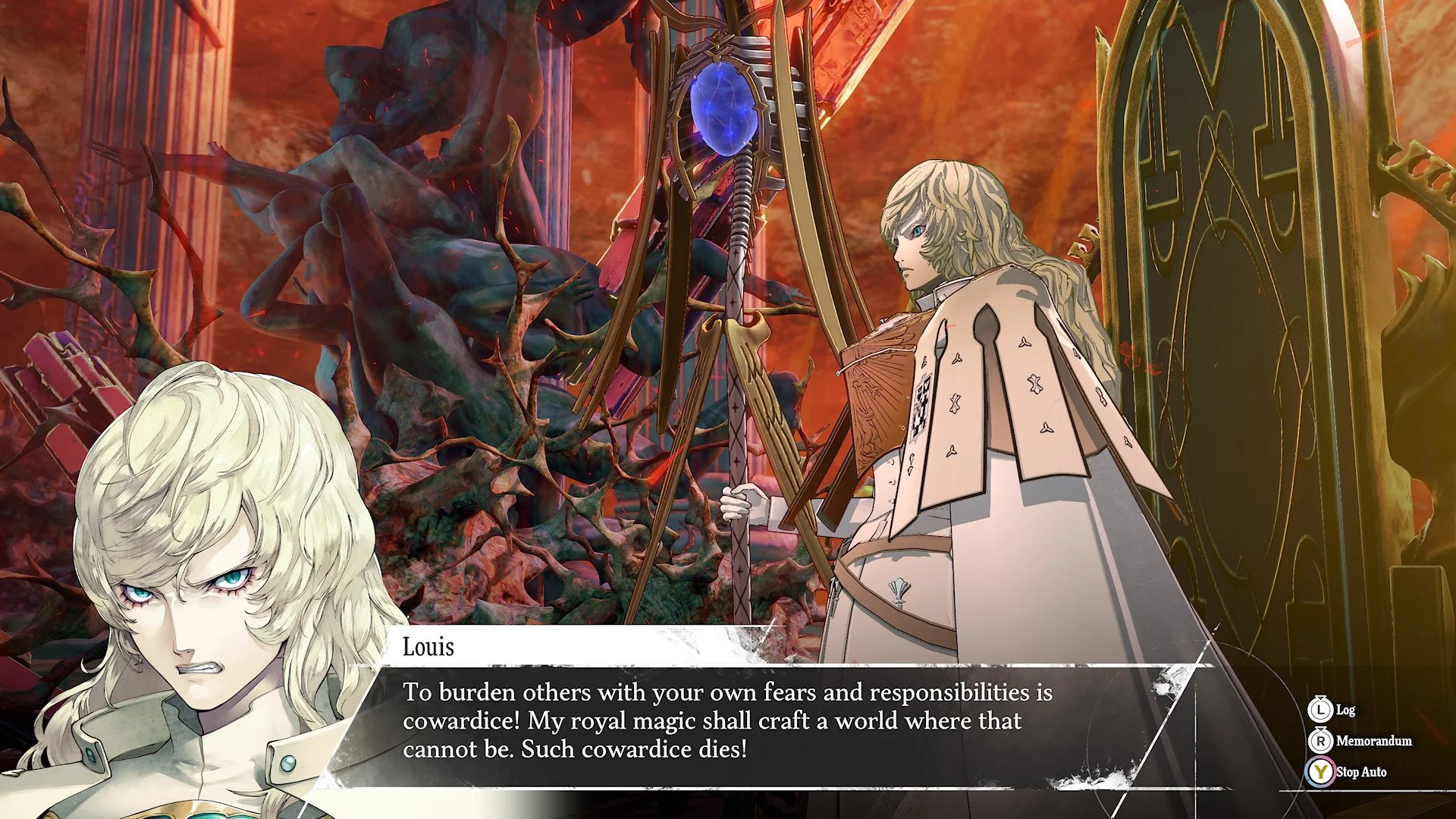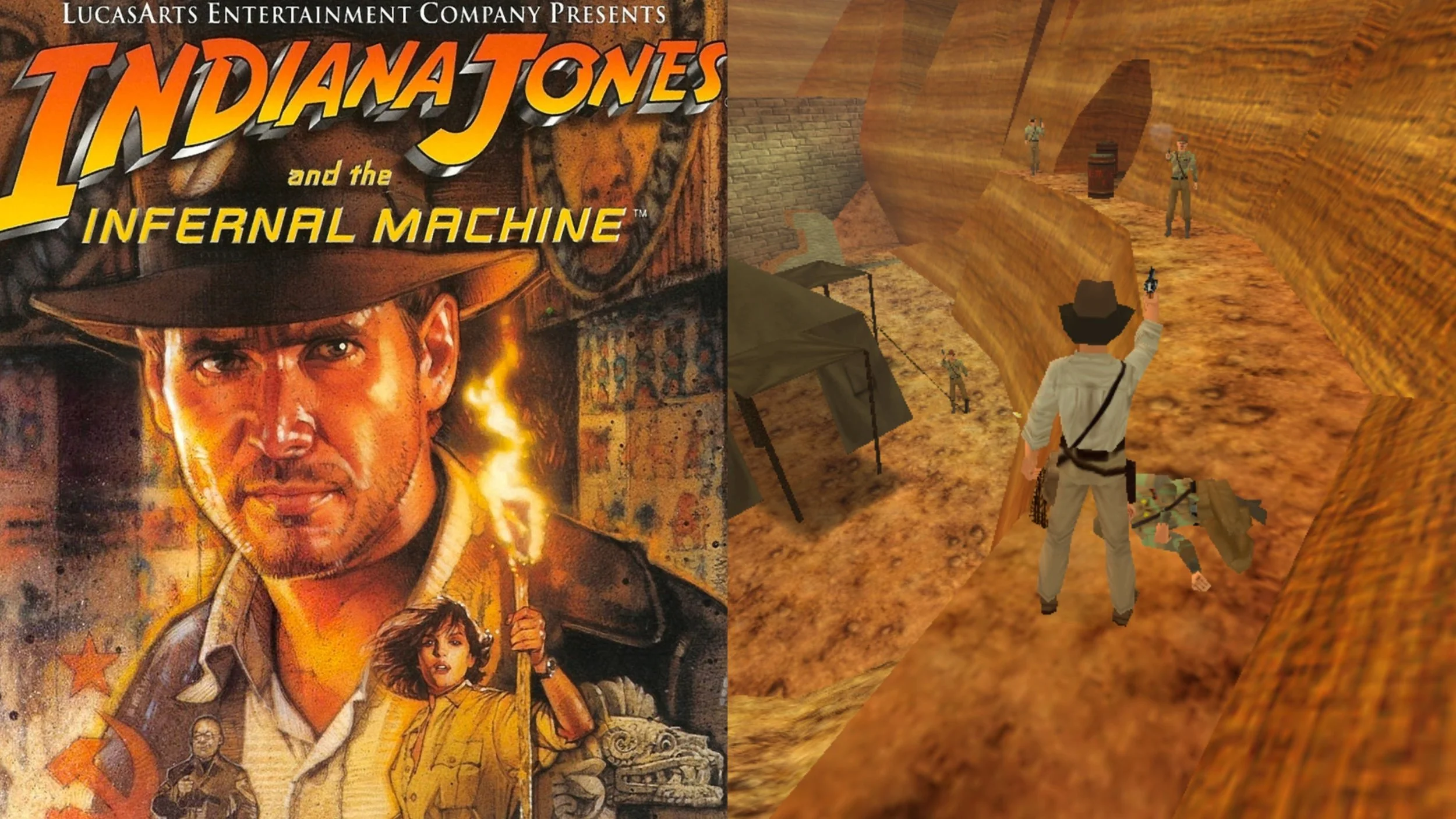David McAdam Examines How Metaphor Begs You To Believe In Humanity Again | Winter Spectacular 2024
Metaphor ReFantazio sends you as the protagonist on a grand adventure around the Kingdom of Euchronia as part of a quest to become the next king. Along the way, you'll meet many others with the same goal, but varying and conflicting ambitions. Some have their own ideas about economics or social classes, some want to enforce racial hierarchy, and some just want free booze for all. Regardless, to talk about this game, we have to use the P-word. Let's talk politics, but really let's talk about ideology, let's talk about humanity, and why Metaphor is desperate for you to have faith in your own.
The plot's inciting events are the king's death and a competition for the crown decreed by royal magic. For the first time in the kingdom's history, the new ruler will be decided by the will of the people. Whomever the population feels is most fitting to rule will be made king once the tournament is over. This is a pure and true democratic contest to win the hearts and minds of the people, and as prone to corruption as any election could be.
The true goal of our protagonist is to save the life of the thought-dead prince, and to do so they become involved in the royal race. The effort to revive the prince runs parallel with the competition for the crown; it is a convenient cover and your goal does not shift to winning until much later in the game. Still, we need to keep up the pretence of running for office, so it's time to hit the campaign trail.
This puts our heroes in lockstep with the many other candidates, most of whom are secondary to the main story. This is the first way in which Metaphor takes some genuine political stances. I know right, a video game making coherent statements, in 2024? It's hard to believe, but it's true enough. Many of these candidates are running on platforms that are fundamentally wrong and evil, and Metaphor is not shy in pointing that out.
These include Rudolph, who believes the people of his tribe, the Roussainte, are physiologically superior to the other tribes. He wants to be king in order to create a racial hierarchy, with the Roussainte alone at the top. Thankfully, Metaphor does little to entertain any merit to Rudolph's beliefs. He isn't simply a misguided fool, but rather an angry man who has let that anger guide his ideals. He isn't alone in that.
You have much lesser evils among the candidates, like Roger the Libertarian (that's genuinely his name in the game, it is hilarious), Jin the spineless grifter whose ideals change more often than the weather, or Goddard who strangely campaigns for the supremacy of the elderly and harshly taxing the young.
Then there are candidates like Loveless and Catherina. Both have genuine complaints about how their society has failed its people, and they seek to rectify it. However, Their methods are thin or flawed and over the course of the game, they see where they have gone wrong and look to amend their methods while continuing to seek change for the better.
The candidates run the gamut from genuinely heinous monsters to idealists with good intentions, but most fall somewhere in the middle. It shows that some people are good, some people are bad, and most people are just trying their best.
Of all the candidates that oppose the protagonist, two stand above the rest. First is Sanctifex Forden, the head of the Sanctist Church, the state religion of Euchronia, who has effectively been in power for years. The second is Louis, a former general in the state military who believes that everyone must be made to fend for themselves to create a society that is moral and fair.
Let's start with Forden. In the final years of his life, the previous King had given more and more control of the kingdom to the Sanctist Church. As such, Forden already had significant power before the king had died. Now, as an Irish person, I have to say that a story about a country where the dominant religion has so much sway it basically controls the government hits pretty close to home.
Forden's bid for power is not a revolution, it's preserving the status quo. The church already dominates the kingdom, and Forden already has control. He's a power-hungry fiend who has convinced the masses he acts in their best interests. He makes bold claims about making the country better if he could juuuust have a bit more power, but we see that his actions are entirely self-serving. He wants power for the sake of power, he doesn't want change.
In other words, he's a real-life politician. His ambition is power for the sake of it, he has no ideals. He is destined to rule because his god says so, and that is all the excuse he needs. We see throughout the game that, while the church does some good, it also does an incredible amount of evil. There is no endgame, no plan for a better tomorrow, simply further consolidation of everything under Forden.
For the majority of the game. Forden and Louis are the only realistic prospects to win the throne. Forden is generally ahead, as to the people he represents what has always been. He is the establishment, and that's comfortable. It doesn't matter that his rule will do nothing to improve people's lives, or that everything wrong with society will continue because that's how it always was. People can very easily be led into a society that eats them alive, not through malice, but through apathy. Why fix what isn't broken? If it is broken, who cares, we're used to it. I voted for him because my father voted for his father, and that's just the way it is.
This is why Louis becomes such a popular prospect. Not all of Forden's flock are sheep, and some are aware enough to see the ills of their kingdom. Louis offers change, radical change, to those who are brave enough to seek it. The people have been asleep for too long, and now the wolves are at the door. Monstrosities roam the kingdom laying waste to towns and villages, and only Lord Louis has the power to stop them.
Power is everything in Louis' world. Not political power, but individual power. The ability to enact one's will on the world is all that Louis cares about, and in his view, the only just world is one where everyone does just that. The strong will survive, the weak will perish, and the strongest will reign above all.
Louis sees that much is wrong with the world, and that is true. He believes a dramatic upheaval is the only way to set the world on a better path, and I cannot fault that logic. Like a lot of fanatical maniacs, Louis' plans start from a good place but go entirely too far. He says he wants a fair world where everyone can be free, but he would make monsters of them all to achieve this.
Also like a lot of zealots with bad ideas, he contradicts himself constantly. It's pretty easy to believe in a world where strength is justice when you're already one of the most powerful people in existence. For someone who believes in individual strength above all else, Louis sure does need a whole bunch of people around him to make his plans work. He might be more dedicated to his cause than Roger the Libertarian, but at least Roger didn't want to slaughter the sick and elderly.
(metaphor-basilio-fidelio-leave-weak-to-die)
We have a lot of Fordens and Louis' in our world, too. When your life isn't so bad, it's easy to turn a blind eye to the suffering of others and continue like nothing needs to change. It's also easy to become disillusioned with the injustices of the world, to feel like only drastic action will make meaningful change. That's likely true, but unfortunately, too many people fall for the same lies over and over again. The world is bad, and there's nothing you can do about it. The world is bad, and it's those people over there who are to blame. The world is bad, and you have to blow it up to fix it.
These views generally come about through insularity. It's harder to hate the world when you make an effort to live in it, it's very easy to hate it when you shut yourself away. Ultimately, that's who Louis is. He's someone who was hurt by the world and closed himself off from it. He sees relying on others as a weakness, as that only allows others to take advantage of you. Louis is a coward and a fraud, but he's an understandable coward and fraud. He's not wrong about the need for change, but he's very wrong in how he wants to go about it. He believes he is destroying evil when at best he is turning a blind eye to it.
In contrast to them both, the Protagonist and his followers come across as your typical plucky hero types. You have a noble goal to save a prince from a curse draining his life, and aside from the odd assassination attempt or undercover mission, you keep your hands relatively clean. You'd be forgiven for thinking that the game is presenting the protagonist as the typical squeaky-clean video game hero with little to no real conviction beyond being the "good guy".
A very surface-level read of Metaphor might have you thinking that Forden is conservatism, Louis is extremism, so our hero represents… centrism? When Metaphor had gone so far as to give some real ideological depth to the antagonists and ancillary characters, I worried that the protagonist was being left as a complete blank slate. This is pretty common in RPGs, you want to give players a character they can easily feel represents them in the game world. They have to be malleable, meaning they're usually a blank slate.
I felt this concern right up until the later parts of the game when it all finally started to click with me. Much like the Persona games, Metaphor has a whole system dedicated to creating and growing relationships with the people around you. This is tied into the Royal Virtues, a collection of stats that you also need to improve to grow your relationships. These virtues are supposedly what makes the protagonist worthy of being king, as they must become courageous, wise, and tolerant to be a good leader.
You go through the game improving these stats, working on yourself to grow as a person. All the while, you grow your relationships with those around you, becoming stronger in battle and a more fitting leader. You go on this journey to become king, but it is through the journey that you learn what it means to be a king. You meet people, learn about their struggles and do what you can to help them. Allies join your cause, and you become stronger together through your bonds.
On the surface, Metaphor says that the way to a better future is through helping others and being kind. This is not breaking new ground in storytelling. However, Metaphor beats you over the head with its core message: the only way forward is together. Louis is god-level powerful, and the protagonist only wins because he never gives up on his friends, and his friends never give up on him.
As trite as that might sound, I came away from the game bowled over by what I felt it was telling me. With the way things are right now, it is completely understandable to be overcome with despair and anxiety. Billionaire losers run our world, deplorable individuals hold immense power, and the poorest and weakest are becoming poorer and weaker.
It is completely reasonable to want things to change. Most of us do, we can see the way the world is going and we know it cannot last. The powerful few are draining every drop they can from our world and plan to leave nothing for future generations. That needs to change, and only radical means will likely do so.
Metaphor: ReFantazio is a work of art that depicts a world we could become, and screams one thing at us over and over. Work together. Yes, there are powerful individuals ruining things for everyone, but the only way forward is together. If you want a better tomorrow, help the people around you. Don't close yourself off, don't stew in your rage alone. If you want to get angry, find others to get angry with, and use that anger to do something positive.
Community is the key to a prosperous future for all. In our post-COVID, social media-driven world, we are becoming increasingly isolated. I really can't talk, I live on a farm in the middle of nowhere, but even I see the truth. I don't see the future when billionaires launch themselves into space, I see it in craft fairs and farmers markets. I see it in pubs and restaurants, I see it in crowds huddled around a busker on the street.
The future is not buying social media companies to force everyone to be your friend, the future is getting involved in local politics and activism. It may seem like the most radical thing you can do to make the world a better place is to blow it up but to be honest, the most radical thing you can do in this day and age is to get out there and care about the world around you. That's the last thing the people in charge want us to do.
There will always be times when drastic action will be needed, but Metaphor is a stark reminder of the importance of caring for others. It begs and pleads with the player to remember to care. Don't let ambivalence or outrage take over, because too much of either can lead you down the wrong path. No matter what, do not lose your faith in humanity. When all else is gone, the only thing we'll have left is each other.











![Willa Rowe Wants To Keep The Memory of NieR Re[in]carnation Alive | Winter Spectacular 2024](https://images.squarespace-cdn.com/content/v1/5caf2dea93a63238c9069ba4/1734970908559-A1PSHH0BFXZPPTRU2JA9/rowe+nier+hed.png)



